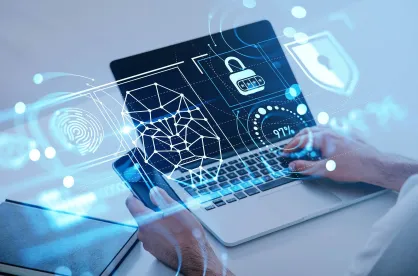On July 18, 2023, the Illinois Supreme Court denied a petition for rehearing in Cothron v. White Castle System, Inc., 2023 IL 128004. The denial comes five months after the Illinois Supreme Court ruled that claims accrue under the Illinois Biometric Information Privacy Act (BIPA) each time data is collected and disclosed—on a scan-by-scan basis.
IN DEPTH
According to the dissents, joined by three of the justices (including the chief justice), the Illinois Supreme Court’s latest ruling will have a major impact on future BIPA cases and has negative implications for Illinois employers and other companies that collect biometric information. According to the dissents, Illinois is already seeing the ruling’s effect: “cases alleging violations of the Act reportedly jumped 65% in Illinois circuit courts in the two months since this court’s ruling.”
While the majority opinion did not go into any detail on its decision to deny White Castle’s petition for rehearing other than to restate its reading of BIPA as announced in February 2023, the majority did further explain what it sees as the discretion of trial court judges overseeing BIPA cases. Specifically, the Cothron Court reiterated that damage awards “would be discretionary” damages under BIPA and should not be imposed to “result in the financial destruction of a business.” Instead, trial courts are now supposed to fashion damage awards by ensuring that they “(1) fairly compensate[] claiming class members; and (2) include[] an amount designed to deter future violations, without destroying defendant’s businesses.” In practice, this could lead to uncertainty for both plaintiffs and defendants alike. It also means that BIPA damages could be tied, at least in part, to the judge overseeing the case. Despite this attempt to downplay the potential impact of Cothron’s per-scan approach, the dissents saw “[t]he implications of the majority’s opinion [as] severe and arguably oppressive, wholly disproportioned to the violates addressed in the Act, and unreasonable.”
The strongly worded dissents also argued that the majority’s ruling “eviscerates the legislature’s remedial purpose of the Act and impermissibly recasts the Act as penal.” The dissents also emphasized the need for the Court to provide clearer standards for the trial courts in setting damages, cautioning that “statutory damages awards must be no larger than necessary to serve the Act’s remedial purposes and should explain how lower courts should make that determination.” In short, the dissents made a strong case that it is time for the legislature to intervene to address what has become an even more uncertain litigation environment under BIPA. The call to action by the Court may ring hollow, however, given that the Court itself is a great source of the uncertainty surrounding BIPA.
The Cothron Court’s recent ruling simply serves to reinforce the uncertain future that defendants—and plaintiffs—now face when trying to scope the potential liability of a BIPA claim. Absent action from the legislature, Illinois companies will be forced to navigate the uncertain legal landscape.
Of course, the best way to avoid BIPA liability is to ensure compliance with the statute in the first instance.
Gabrielle Siroonian, a summer associate in the Chicago office, was a contributing author to this article.





 />i
/>i

